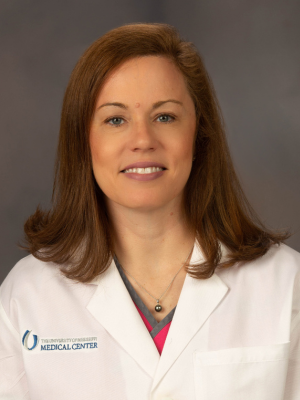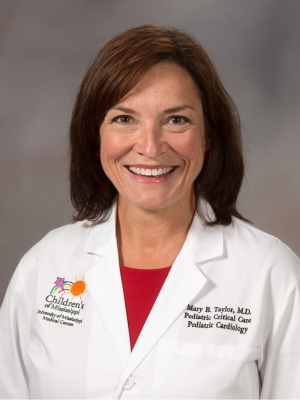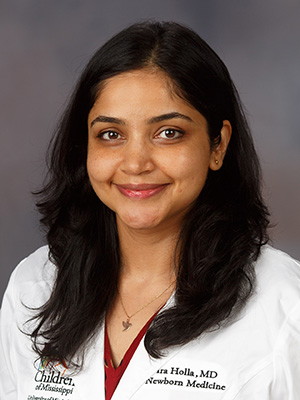UMMC part of the solution to infant mortality public health emergency

The University of Mississippi Medical Center is working to give babies a healthy start in life through programs that address infant mortality, the subject of a public health emergency declared Thursday by the Mississippi State Department of Health.
In 2024, data shows the state’s overall infant mortality increased to 9.7 deaths per 1,000 live births, the highest in more than a decade. In Mississippi, 3,527 babies have died before the age of 1 since 2014.

“Too many Mississippi families are losing their babies before their first birthday,” said Dr. Dan Edney, state health officer. “This is deeply personal to me – not just as a physician, but as a father and grandfather. Every single infant loss represents a family devastated, a community impacted and a future cut short. We cannot and will not accept these numbers as our reality.”

“As a maternal-fetal medicine specialist, I am deeply concerned about Mississippi’s rising infant mortality rate,” said Dr. Rachael Morris, associate professor of obstetrics and gynecology and maternal-fetal specialist. “High rates of preterm birth, chronic maternal conditions, and limited access to prenatal and neonatal care—especially in rural areas—are driving this crisis.
“Expanding postpartum coverage, supporting rural hospitals, and investing in maternal health programs are essential steps if we want to reverse these trends and give every baby the best chance at life.”
In Mississippi, postpartum coverage was extended from 60 days to one year. Pregnant women can access Medicaid coverage through programs like Presumptive Eligibility and Mississippi Access to Maternal Assistance (MAMA), which provide essential health care services and support. All were passed by the Mississippi Legislature.
The leading causes in Mississippi include congenital malformations, preterm birth, low birth weight and Sudden Infant Death Syndrome (SIDS).

“At Children’s of Mississippi, we are committed to being part of the solution,” said Dr. Mary Taylor, Suzan B. Thames Chair and professor of pediatrics. “Every baby deserves a healthy start, and every mother deserves access to the care and support she needs to give her child the best chance at life.”
In June, UMMC’s Office of Communications and Marketing produced “Expecting Better: Inside the Fight for Maternal Health in Mississippi,” a series of stories focused on maternal health and access to care.
Dr. Mobolaji Famuyide, chief of pediatric neonatology, sees maternal health as an essential part of babies’ well-being.
“Investing in maternal care is investing in Mississippi’s future,” she said. “Healthy mothers mean healthy babies and that lays the foundation for a stronger, more prosperous state.”
Dr. Ira Holla, associate professor of neonatology and quality director in UMMC’s Division of Newborn Medicine, agrees.

“There is so much overlap between the health of mothers and babies,” she said, as part of the series. “When mothers cannot access the care they need, their babies may need advanced neonatal care.
"As access to maternity care continues to decline statewide, UMMC is helping bridge critical gaps by equipping more than 1,000 emergency providers with life-saving obstetric education through STORK and monitoring expectant mothers’ health remotely via its maternal telehealth program.
Improving maternal health is the best way to reduce infant mortality, Edney said. “That means better access to prenatal and postpartum care, stronger community support and more resources for moms and babies. Healthy women of childbearing age are more likely to have healthy pregnancies, which in turn lead to healthier babies.”
For questions about prenatal care, reproductive health or where to find a provider, visit Myrlie Evers-Williams Institute’s “We Need to Talk” resource guide.


